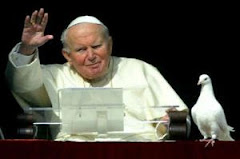
STATEMENT OF THE CATHOLIC LABOR NETWORK ON THE EMPLOYEE FREE CHOICE ACT
Well over a century ago, with the rise of industrial capitalism, Pope Leo XIII issued his encyclical Rerum Novarum. Reflecting on how the modern economy too often offered the rich and powerful an opportunity to exploit working people, he took consolation in the multiplication of "workingmen' s unions" that helped ameliorate the condition of labor. "There are not a few associations of this nature," the Holy Father observed, "but it were greatly to be desired that they should become more numerous and more efficient."
But we live today in a nation where associations of this nature are becoming steadily fewer, in large measure because of widespread unlawful action by employers to obstruct the right of workers to organize in unions. Conservative estimates indicate that tens of thousands of workers are fired every year for exercising their lawful right to organize. Seeking a union under today's National Labor Relations Act system is an arduous and dangerous process for employees if their employers object, yet penalties for violating the Act are so trivial as to create economic incentives for illegal union-busting activities.
Catholic social teaching on the right of workers to organize has been admirably consistent over the century since Leo XIII wrote, with John Paul II observing even more emphatically in his 1981 encyclical "Laborem Exercens" that labor unions are "indeed a mouthpiece for the struggle for social justice" and in fact "an indispensable element of social life."
We in the Catholic Labor Network agree that trade unions represent "an indispensable element of social life" and that "it were greatly to be desired that they should become more numerous," but that the current condition of labor law in the United States militates against this. The Employee Free Choice Act would help address this problem. For this reason, we in the Catholic Labor Network conclude that the Employee Free Choice Act represents a sound public policy method to effect the purposes of Catholic Social Teaching.






No comments:
Post a Comment